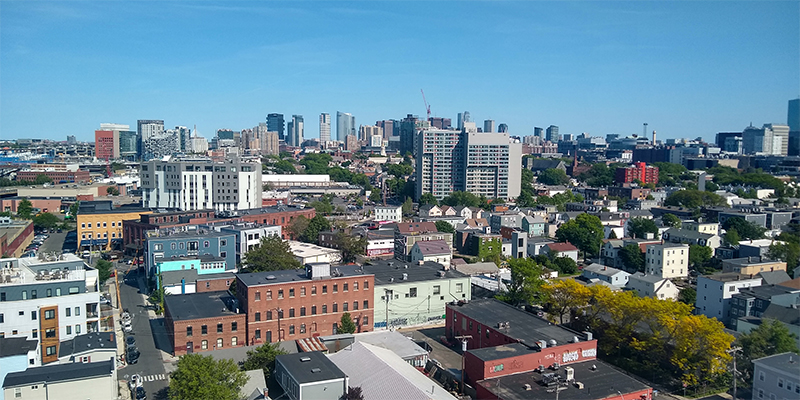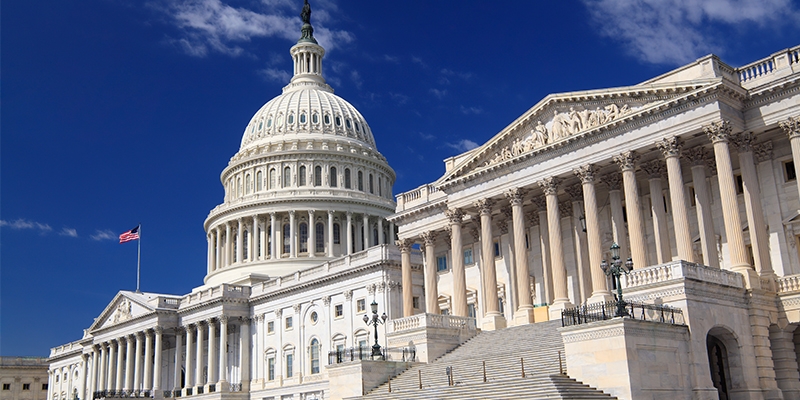NAIOP National Forums members attending last week’s annual Symposium had the opportunity to tour several projects in the office and life science markets in East Cambridge, Somerville and the greater Boston market. The tour, led by Rob Dickey, Executive Vice President at Leggat McCall Properties (LMP), included site visits to two mixed-use projects that are currently under development.
East Cambridge
East Cambridge is a central hub for life science and technology firms in the Boston area, with 8.0 million square feet of office space and 8.6 million square feet of lab space, and an additional 3.6 million square feet of office and lab space currently under development. The market enjoys low direct vacancy rates (2.9% for office, 1.8% for lab) and high rents ($102 gross per square foot asking rent for office space, $116 triple net lease asking rent for lab space, according to JLL). Prominent organizations in the area include MIT, Sanofi, Moderna, Novartis, Eli Lilly, Google, Apple, IBM, Microsoft and Biogen.
In East Cambridge, Leggatt McCall Properties (LMP) is partnering with Granite Properties to convert the former Edward J. Sullivan Courthouse and Jail in East Cambridge into a mixed-use building with office, multifamily and retail space at 40 Thorndike. When completed, the building will consist of 500,000 square feet, divided between 422,000 square feet of office space, 48 affordable multifamily units and 15,000 square feet of ground floor amenity and retail space. Amenities will include a social club, conference space, a fitness center and childcare center.
LMP and Granite secured the building for $33 million in 2012 by entering the winning bid when the Commonwealth of Massachusetts solicited proposals to redevelop the property. Discretionary permits were obtained in 2014, and LMP and Granite subsequently obtained a parking lease in an adjacent structure, secured financing, closed the acquisition, and commenced construction in 2021.
Conversion of the existing building required extensive asbestos abatement, draining 9 feet of contaminated water that had pooled in the building’s basement, and removing the building’s brutalist concrete skin and replacing it with a glass-and-terracotta skin. Large sections of concrete deck were in poor condition and had to be removed and replaced. In response to community feedback, the height of the building was reduced from 22 to 20 floors. The project will be delivered in the first quarter of 2024 at a budgeted cost (acquisition and construction) of $500 million.
Somerville
Somerville recently adopted the Union Square Neighborhood Plan, which envisions 5 million square feet of commercial development. Office and life science development has also been facilitated by the extension of the MBTA Green Line Train to the neighborhood.
In Somerville, LMP is partnering with DLJ Real Estate Capital Partners on ground-up development of a 1.8 million square foot life science and innovation community that will consist of 1.3 million square feet of Class A lab/office space, 450 apartments, an arts and community center, and more than two acres of public green space.
101 South Street, the first purpose-built lab building in Somerville, has been completed and fully leased to four life science companies backed by private equity company Flagship Pioneering. Developing life science buildings for early-stage biotechnology tenants can carry risk, since these firms generally do not generate income for multiple years and quickly deplete cash. The possibility that a firm may not be able to hold onto their lease is mitigated through the landlord making sure the interior improvements are designed and built to flexible and generic standards, which can generally be re-leased to a new tenant with minimal alterations and re-investment in tenant improvements. In the case of 101 South Street, Dickey indicated that Flagship Pioneering’s backing for the four tenants gave LMP and DLJ confidence that the four tenants would be successful, as Flagship is an established firm with a reputation for making prudent investments in the life sciences sector, including Moderna.








